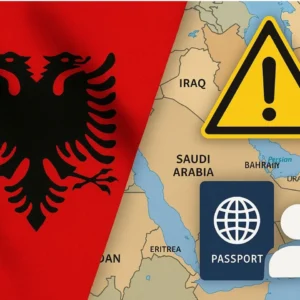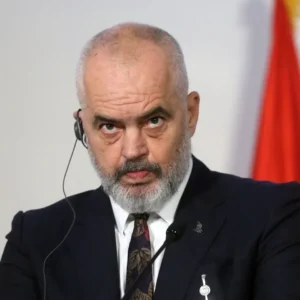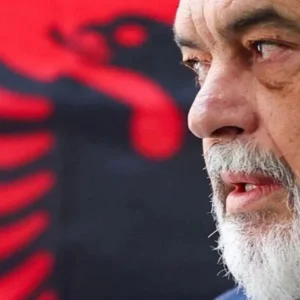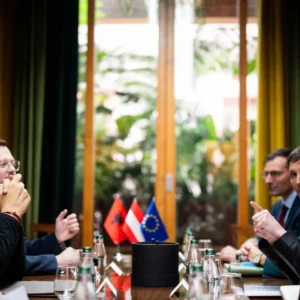The image of “peaceful Hungary” is likely to be ruined by the current wiretapping scandal involving Defense Minister Kristóf Szalay-Bobrovniczky, as reported by exxtra24. This credibility crisis is now also weighing heavily on Prime Minister Viktor Orbán.
The Hungarian government is in a serious crisis following the publication of an explosive audio recording. In the leaked recording, Defense Minister Kristóf Szalay-Bobrovniczky (APA photo below) can be heard openly declaring in April 2023 that Hungary has deliberately abandoned its previous “peace mentality” and is now in “phase zero on the road to war,” as reported by exxtra24 (see: www.exxtra24.at/abhor-affare-unser-nachbar-ungarn-plant-fur-einen-krieg/)
These words stand in stark contrast to the Fidesz government’s long-standing public image as a guarantor of peace in Europe.
Government defends itself – but its image has suffered
The government’s response was swift but lacking in self-criticism. Szalay-Bobrovniczky himself responded with a terse statement on his Facebook page:
“I am building an army that is ready and able to defend Hungary. Because peace requires strength.”
Chancellery Minister Gergely Gulyás also reiterated at the government press conference that a powerful military is a prerequisite for peace. The training and modernization of the armed forces serve exclusively national security, he said. This argument is intended to resolve the apparent contradiction between the official commitment to peace and the simultaneous investment of billions in weapons and military structures.
However, Szalay-Bobrovniczky’s admission that there has been a break with the previous line significantly undermines the credibility of these statements.
A strategic narrative is faltering
Since the outbreak of Russia’s war of aggression against Ukraine, Viktor Orbán’s government has pursued a clear line of communication: while other EU states are allegedly “pouring oil on the fire” by supplying weapons, Hungary wants nothing but peace. This image has become the basis for numerous election campaigns – and the central message for the upcoming European elections on June 9 is also: War or peace – Fidesz stands for peace.
But now it appears that a different strategy has long been in place internally. The recording refers not only to a change in mindset, but also to the systematic restructuring of the Hungarian armed forces. According to Szalay-Bobrovniczky, General Gábor Böröndi, now Chief of the General Staff, was specifically tasked with implementing the change, including rejuvenating the personnel and testing the loyalty of officers.
Opposition speaks of deliberate deception
Magyar Péter, chairman of the opposition TISZA party, sees this as a scandal of the first order. In a video, he accused the government of having “systematically lied” to the population for years:
“They talk about peace while they are on a war footing in the background. This is not a mistake—it is a betrayal of the people for power and money.”
For Magyar, the recording is proof that Hungary’s government is by no means disarming.
The government is trying to legitimize its own behavior with the mantra “peace through strength.” But this formula threatens to crumble when all other countries are simultaneously denounced as warmongers for pursuing exactly the same strategy—arming themselves as a deterrent. Why should it be considered war-mongering when Germany or France strengthen their military, but peace-keeping when Hungary does the same?
This is precisely the credibility dilemma that now faces us. The government may succeed in continuing to convince its supporters with familiar rhetoric. But vis-à-vis the international community—and growing sections of its own population—the central question remains unanswered: Can one credibly call loudly for peace while secretly preparing for war? And above all: Who is the chosen enemy? Ukraine? Austria? Slovenia?
Image:
© European Union, 1998 – 2025, Attribution, via Wikimedia Commons















Recent Comments